World War One (daily life)
Where can I find information about daily life during World War One?
(Years 7-10)
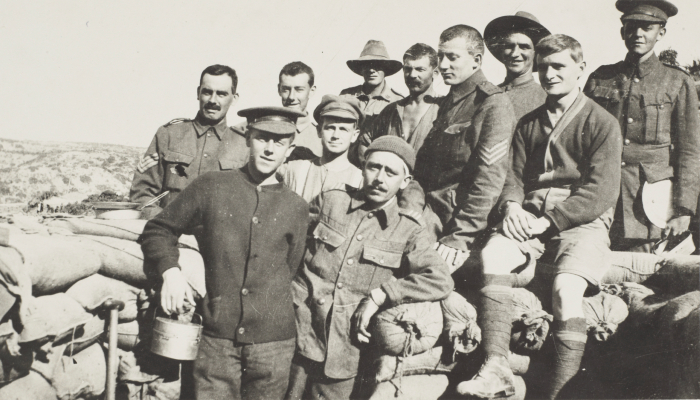
Image: Gallipoli Military Campaign: Otago Gully Headquarters Staff, Gallipoli by Lawrence Doubleday from Te Papa.
Entry last updated: 15/09/25
Introduction
World War One, also known as the First World War or the Great War, lasted from 1914 until 1918. During these four years, daily life changed for everyone involved with the war. This entry will show you how to find information about daily life for soldiers and nurses who went to war, and about the people who stayed at home.
New Zealand sites
The following websites from Aotearoa New Zealand have information about the daily life of the soldiers and nurses, as well as people on the home front in World War One.
NZ History is a great website for information about Aotearoa New Zealand. If we go all the way down the page, we can see that the website belongs to the Ministry for Culture & Heritage. This tells us that the information is well-researched and reliable.
From the homepage, select New Zealand at War, then select the heading First World War to find lots of sections covering different aspects of the war.
Read New Zealand Army Nursing Service for information on the lives of nurses during the war.
The Gallipoli campaign has a story called Soldiers' experience about the tough life on the war front.
From under Western Front, select Life in the trenches.
Look under Home Front to read Schools and the First World War and Supporting the war effort.
The section called Public Service at war is the part played by the New Zealand public service in the war effort, both at home and overseas.
Tips: Many web pages have links to further information or to other recommended sites. Following these links is a great way to find out more.
Te Ara: The Encyclopedia of New Zealand
Te Ara is another excellent starting point for all questions about Aotearoa New Zealand. This website also belongs to the Ministry for Culture & Heritage, so the information is well-researched and reliable.
Enter the search words 'First World War' in the search box to find First World War.
Explore the story of Gallipoli and the war against Turkey to read about soldiers' experiences.
The story Home front, 1917 to 1918 has information on how difficult life was back in New Zealand for children, families and the general public.
Tips: Search words, or keywords, are the most important words in our question. You can leave out small words like ‘the’ and ‘of’ and just choose the main ones, eg 'World War One'. We can always change our keywords or add more if we need to.
Have a look at the WW100 website, set up to commemorate 100 years since World War One.
Use the keyword 'objects' in the search box.
Select Meet the objects -the daily life of a soldier at Gallipoli to find out about the equipment and objects that soldiers used every day.
Then use the tab NZ at war to find Personal stories.
Read the stories about the Desert riders and Keeping the home fires burning.
Tips: We like sites like this because they’re reliable. You can tell because of their web address – they have either .govt or .ac, meaning they are from government or educational organisations. They’re also New Zealand sites, so relevant for us.
Launched in 2009 by the Ministry of Arts, Culture and Heritage, this site is a record of honour and information about the Māori Battalion's contribution to Aotearoa New Zealand in World War One and World War Two.
The tab Story of the 28th has lots of topics on the experiences of the battalion during World War One.
To start, read Life in the Battalion and Desert Fighters.
Home Front is about the active role Māori played to support the war at home in Aotearoa.
Tips: Websites that have .org or .net in the address can have good information, but you need to assess how reliable it is. Check the About us link on the website, if you can find one. That can tell you what the organisation’s mission and values are.
Tāmaki Paenga Hira | Auckland War Memorial Museum
This is one of New Zealand's significant heritage libraries. It has pictorial and art, Māori and Pacific, natural, social, and history collections.
Enter the keywords 'world war one daily life' into the search box.
Read the story Meet the objects: The daily life of a soldier to look at the objects that soldiers used daily on the battlefront.
Tips: Websites that have .com or .co in the address can have good information, but you need to assess how reliable it is. Check the About us link on the website, if you can find one. That can tell you what the company’s mission and values are.
General websites
The websites below have articles and stories about the daily lives and experiences of soldiers, nurses and ordinary people from other countries who were in World War One.
Located in Britain, the Imperial War Museum is one of the best museums dedicated to military history. It has objects, documents, photographs, and films in its collection. There is also a search box to help you find anything specific.
Use the search bar to enter the search words 'World War One women'.
Look down the page to Stories to select 12 Things You Didn't Know About Women In The First World War to read how women's lives changed during this time.
Try the keywords 'World War One home front' to find 20 Incredible Photos from the First World War Home Front or Voices of the First World War: News From The Front.
Tips: Some websites have .au, .nz, .uk or other codes in their url. This can tell you which country this website comes from eg .au is from Australia or .nz is from New Zealand. You can check the About Us link on the website for more information.
BBC Bitesize is a website set up to help British students with schoolwork. It has articles, photos, and videos.
Use the search words 'World War One daily life' in the search box at the top of the page.
Take a look at What was life like on the Home Front during World War One? and What was life like in a World War One trench?
Tips: While the information on the BBC Bitesize site is very reliable, most video clips do not work in New Zealand.
The Smithsonian is the world's largest museum and the national museum of the United States. Home to museums, galleries and the National Zoo, it has collections that help people to find information on the history of America.
The search words 'World War One' will help you find the page called World War 1 Centennial.
Under From Our Museums and Research Centers, find Uncover the Stories of the Great War in the Air to read about the Tools of Trench Warfare.
Under Smithsonian Spotlights, select Letters from Children of WW1, a video about a letter from Belgian children to children in America.
The Australian War Memorial is a museum and archive dedicated to commemorating the lives of Australians who served the country in war and conflict.
Enter the words 'world war one nurses' into the search box, then look under Articles to find The nurses general.
Or, use the keywords 'world war one', then look under Articles to read The letters of Captain Charles Edwin Gatliff.
Books
There have been many books written about daily life in World War One. Check out your local public or school library to see what they have.
Some suggested titles are:
The home fronts in World War 1 by Nick Hunter.
New Zealand society at war by Steven Loveridge.
Men, women and children in the First World War by Philip Steele.
Anzac girls: the extraordinary story of our World War I nurses by Peter Rees.
SCIS no: 1915711
Topics covered
Related content
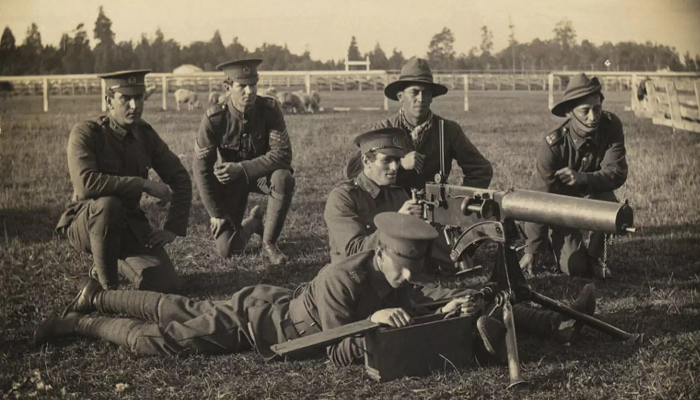
World War One (junior)
Where can I find information about World War One?
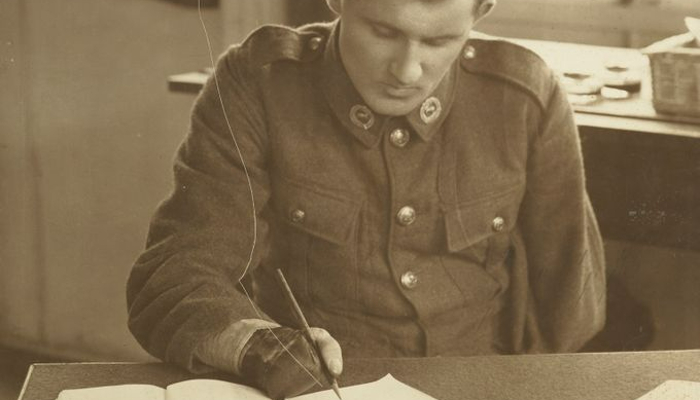
WW1 (primary sources)
Where can I find primary sources for World War One?

World War One
Where can I find information about World War One?
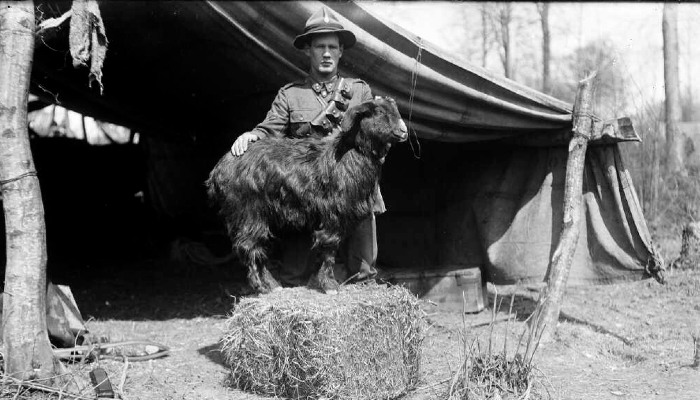
World War One (animals)
Where can I find information about the animals used in World War One?
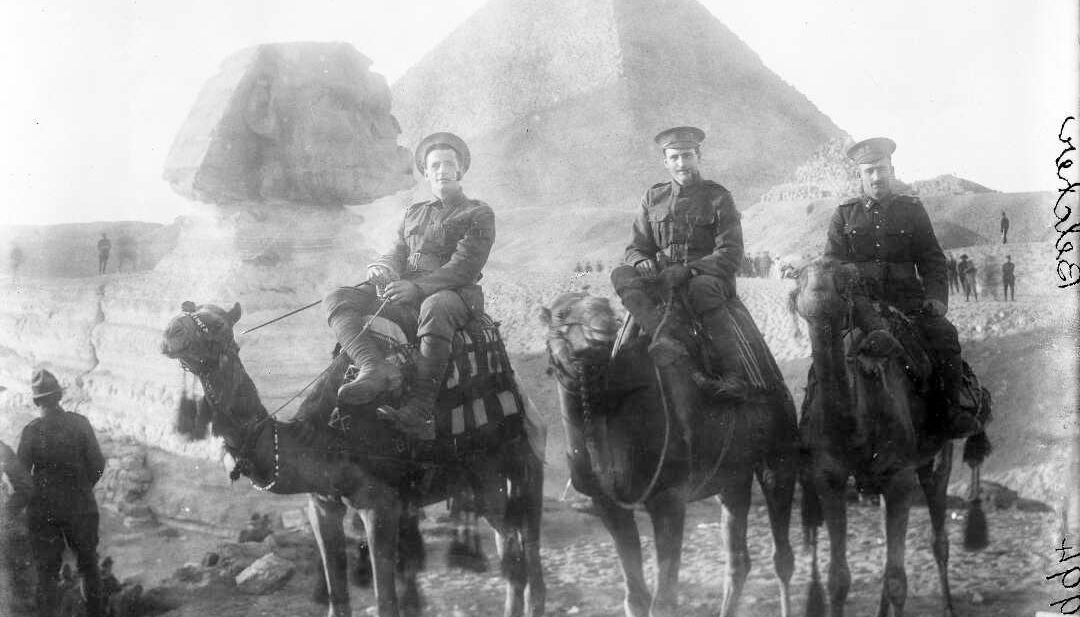
WW1 battles and campaigns
Where can I find information about the main battles and campaigns of World War One?
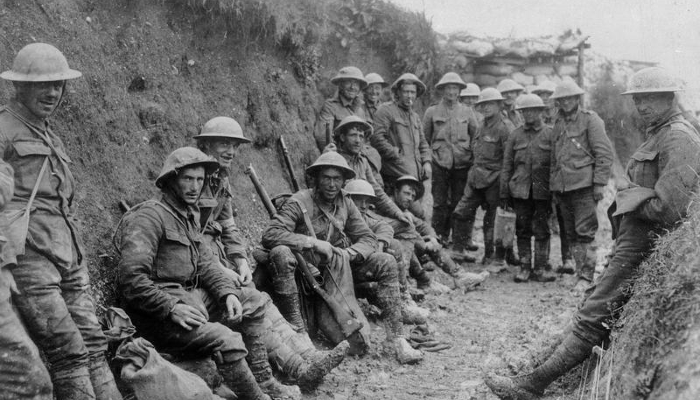
World War One (experiences of war)
Where can I find information about experiences of war during World War One?

World War One (daily life)
Where can I find information about daily life during World War One?
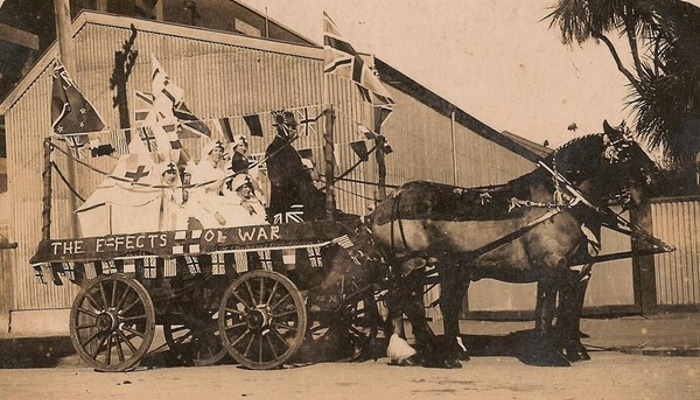
World War One (New Zealand involvement)
Where can I find information about New Zealand's involvement in World War One?
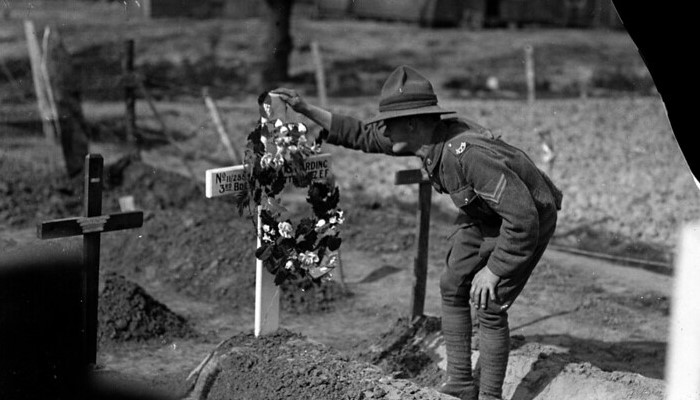
World War One (causes and impacts)
Where can I find information about the causes and impacts of World War One?
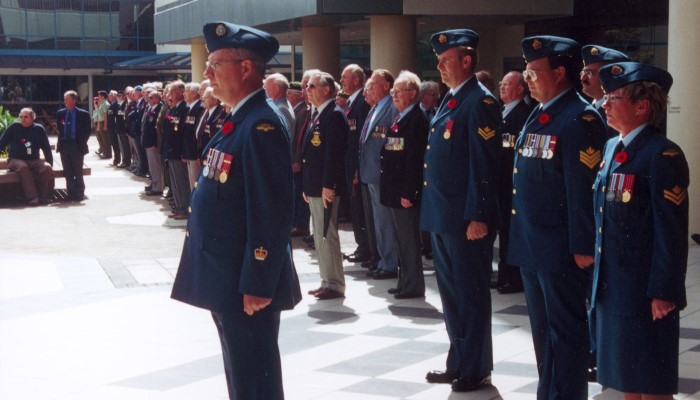
Changing views on conflict
Where can I find information about the local histories of Auckland | Tāmaki Makaurau?
